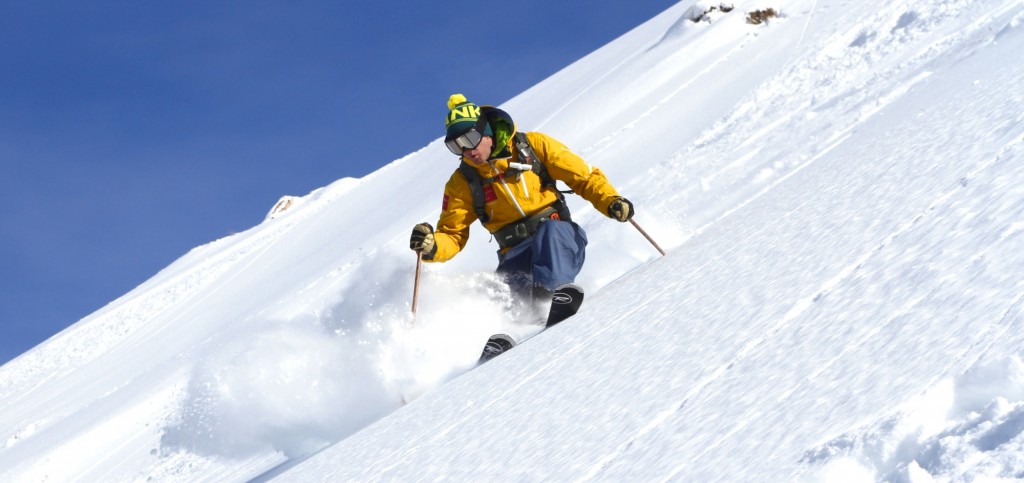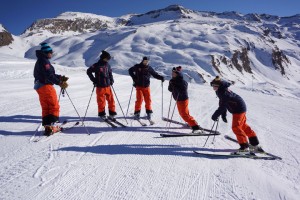What level of risk are you prepared to take when you’re skiing? Are you a risk averse, fair weather slider or driven by the adrenaline of skiing fast and steep? It takes all sorts and at TDC we ski with a huge range of performers and that is part of the attraction of this wonderful job. One of the great fascinations is observing, and sometimes influencing, how people approach learning and seeing how learning and risk interact. In order to learn one has to risk attempting something new. It may be a small step and a small risk but it needs to be there nevertheless. Without it the dreaded plateau beckons, and at worst – decline.

For some the very mention of risk is enough to set knees trembling yet most people want to get better at skiing. Fortunately it is not the level of actual risk but the level of perceived risk that is central to learning. For a nervous intermediate who feels frightened of pointing the ski downhill on a blue run, the perceived risk of doing so is potentially greater than that experienced by an expert skier who descends a steep, rock-filled couloir. The actual risk of failure is indeed greater in the couloir but because the performer is within their comfort zone and perceives minimal risk there is likely to be minimal learning. By overcoming a greater likelihood of failure we access a more significant learning episode. So who is in fact the risk taker in this example; the extreme skier or the nervous intermediate?
At TDC we frequently reflect as a group on the way we coach and upon how we build relationships with our clients. A common point of discussion is how to manage the expert skier who books lessons with the intention of improving. It is difficult for adult learners to relinquish old habits and accept the risk of failing at something new. More often than not a change in performance necessitates unfamiliar sensations, and a certain vulnerability as motor programmes adjust, proprioception recalibrates and expectations are reframed. Here progress depends on two factors;
- A willingness to embrace perceptions of risk
- The relationship forged between coach and learner.

Most people when asked “what do you wish to achieve during this lesson” will focus on success, however, it is openness to failure that sets the really successful learners apart.
This memoir has been forged by Coach Paul, from a reflective foundation of many years teaching people ‘how to learn’. He is a director of TDC, an inspirational ski teacher and lecturer at the University of Gloucestershire in Sports Coaching.